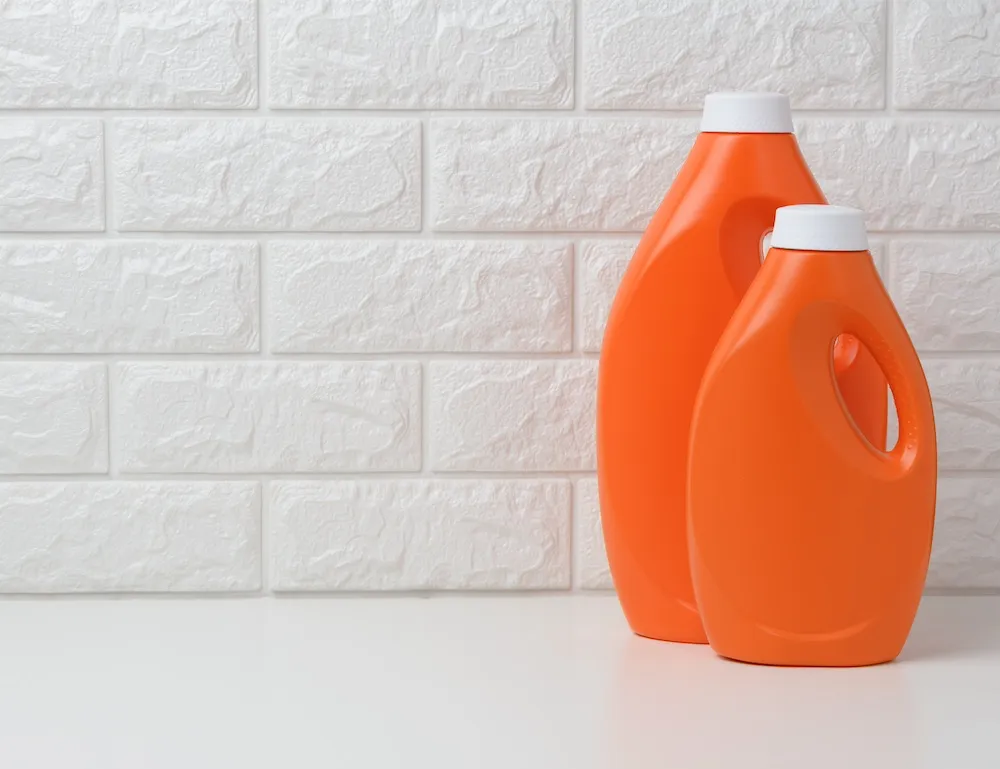
The revision of the European Union (EU) Detergent Regulation (EC) No 648/2004 aligns with the European Green Deal and the EU's strategy to ensure a toxic-free environment. This revision proposes adaptation to current realities and new challenges in sustainability, transparency, and chemical product safety. The updated regulation, currently in development, introduces changes aimed at supporting a greener, digital, and circular economy. Originally scheduled for the end of 2022, the revision is still ongoing with trilateral discussions involving the European Parliament, the Council, and the European Commission. Here are the main developments and new features.
Context of the Detergent Regulation Revision and Council Position
On April 28, 2023, the Commission published a proposal to revise the detergent regulation, followed by the adoption of the EU Council’s negotiating mandate. This mandate proposes to simplify rules for the sale and free circulation of detergents in Europe, aligning manufacturer and importer obligations with those of other EU regulations, such as the CLP Regulation for classification and labeling of chemical products. This simplification aims to facilitate trade while ensuring increased consumer and environmental protection.
New Product Passports and Enhanced Detergent Traceability
One of the core measures in this revision is the introduction of a product passport for each batch of detergent. This product passport, which will accompany the product throughout its life on the market, will serve as proof of compliance by grouping essential information:
- Unique identifier for complete traceability.
- Manufacturer's name and address for enhanced transparency.
- Detergent identifier and label for immediate product identification.
- References to legislative acts the detergent complies with.
- List of ingredients.
This passport must be kept in all official languages of the target markets and be available for 10 years after the product's first market release. The reference for each product passport will be recorded in the detergent registry under Article 20 of the amended regulation proposal.
Digital Labeling and CE Marking
The revised regulation provides for the adoption of digital labeling, which could be hosted on the same platform as the product passport. This digital label, available for 10 years, would simplify information display, especially for products sold in bulk at refill stations. However, the Council requires these products to have a physical label to ensure direct consumer information.
Additionally, the revision may introduce the requirement of CE marking for detergents, ensuring better product visibility and compliance in the European market.
Biodegradability Requirements and Microorganism Restrictions
The revision emphasizes the biodegradability of detergent organic components, a crucial aspect to reduce their environmental impact. Furthermore, for detergents containing microorganisms and sold in spray form, only formulations meeting strict safety standards and carrying the necessary warnings will be authorized.
Phosphorus Limitation and Requirements for Allergenic Fragrances and Biocidal Substances
Member States have included a review clause to assess the opportunity to reduce phosphorus levels in detergents to mitigate their ecological impact. The Council also reinforced regulation on allergenic fragrances, aligning their labeling with that of cosmetics, as well as on biocidal substances to ensure greater compliance with existing legislation.
Potential Ban on Animal Testing
The Commission’s proposal may prohibit animal testing to assess detergent safety for human health, a significant step toward more ethical and sustainable practices.
Harmonization for Third-Country Producers
Producers from third countries wishing to sell detergents in the European market will have to appoint an authorized representative within the EU, thereby ensuring their products meet the same requirements as those manufactured locally.
Next Steps
With the adoption of this negotiating mandate, the Council has formalized its position and can begin discussions with the European Parliament. The revision of the Detergent Regulation is an important step toward a safer, more transparent framework that is better suited to current environmental and public health challenges. These adjustments aim to facilitate innovation in the sector while enhancing product safety and sustainability for European consumers and the environment.
Want to get ahead of this new regulation? Contact our experts!
The revision of the European Union (EU) Detergent Regulation (EC) No 648/2004 aligns with the European Green Deal and the EU's strategy to ensure a toxic-free environment. This revision proposes adaptation to current realities and new challenges in sustainability, transparency, and chemical product safety. The updated regulation, currently in development, introduces changes aimed at supporting a greener, digital, and circular economy. Originally scheduled for the end of 2022, the revision is still ongoing with trilateral discussions involving the European Parliament, the Council, and the European Commission. Here are the main developments and new features.
Context of the Detergent Regulation Revision and Council Position
On April 28, 2023, the Commission published a proposal to revise the detergent regulation, followed by the adoption of the EU Council’s negotiating mandate. This mandate proposes to simplify rules for the sale and free circulation of detergents in Europe, aligning manufacturer and importer obligations with those of other EU regulations, such as the CLP Regulation for classification and labeling of chemical products. This simplification aims to facilitate trade while ensuring increased consumer and environmental protection.
New Product Passports and Enhanced Detergent Traceability
One of the core measures in this revision is the introduction of a product passport for each batch of detergent. This product passport, which will accompany the product throughout its life on the market, will serve as proof of compliance by grouping essential information:
- Unique identifier for complete traceability.
- Manufacturer's name and address for enhanced transparency.
- Detergent identifier and label for immediate product identification.
- References to legislative acts the detergent complies with.
- List of ingredients.
This passport must be kept in all official languages of the target markets and be available for 10 years after the product's first market release. The reference for each product passport will be recorded in the detergent registry under Article 20 of the amended regulation proposal.
Digital Labeling and CE Marking
The revised regulation provides for the adoption of digital labeling, which could be hosted on the same platform as the product passport. This digital label, available for 10 years, would simplify information display, especially for products sold in bulk at refill stations. However, the Council requires these products to have a physical label to ensure direct consumer information.
Additionally, the revision may introduce the requirement of CE marking for detergents, ensuring better product visibility and compliance in the European market.
Biodegradability Requirements and Microorganism Restrictions
The revision emphasizes the biodegradability of detergent organic components, a crucial aspect to reduce their environmental impact. Furthermore, for detergents containing microorganisms and sold in spray form, only formulations meeting strict safety standards and carrying the necessary warnings will be authorized.
Phosphorus Limitation and Requirements for Allergenic Fragrances and Biocidal Substances
Member States have included a review clause to assess the opportunity to reduce phosphorus levels in detergents to mitigate their ecological impact. The Council also reinforced regulation on allergenic fragrances, aligning their labeling with that of cosmetics, as well as on biocidal substances to ensure greater compliance with existing legislation.
Potential Ban on Animal Testing
The Commission’s proposal may prohibit animal testing to assess detergent safety for human health, a significant step toward more ethical and sustainable practices.
Harmonization for Third-Country Producers
Producers from third countries wishing to sell detergents in the European market will have to appoint an authorized representative within the EU, thereby ensuring their products meet the same requirements as those manufactured locally.
Next Steps
With the adoption of this negotiating mandate, the Council has formalized its position and can begin discussions with the European Parliament. The revision of the Detergent Regulation is an important step toward a safer, more transparent framework that is better suited to current environmental and public health challenges. These adjustments aim to facilitate innovation in the sector while enhancing product safety and sustainability for European consumers and the environment.
Want to get ahead of this new regulation? Contact our experts!







